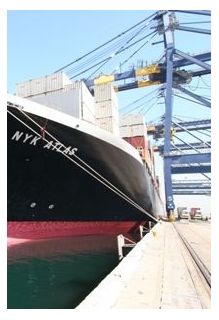OPS installed

OPS installed
Implementation and financing of OPS projects will involve a variety of parties. In many cases already, local governments have contributed to investments. With its potential for significant cuts in air pollutant and CO2 emissions, OPS is one of the options available for achieving sustainability targets. There are also several examples of shippers and shipping lines expressing an interest in the application of OPS to achieve sustainability goals and improve working conditions. Implementation of OPS can be spurred by environmental regulations, pressure from communities, politicians and governments or stakeholder interest.
License to operate for ports
The environmental performance of ports is becoming increasingly important as a license to operate. The international regulations for seagoing vessels agreed by IMO in 2008 are a significant step forward, but it is broadly felt that additional measures are required to address local air quality concerns. In several countries measures have already been taken to ban old trucks from sensitive areas and community acceptance of port expansion requires due attention from operators, including proactive behaviour. Social responsibility is, in short, a prerequisite for future port development.
Interest of shippers
In recent years shippers have shown a growing interest in the environmental impact of the logistical chain. The environmental burden embodied in consumer goods is being seen as increasingly important. In some countries regulations in this area are being developed and a growing number of companies are pursuing sustainability goals through improvements to their product and logistical chains. This kind of “greening” of supply chains may result from shippers participating in specific projects or may be part of green packages offered by the maritime industry.
“OPS helps to minimize emissions in accordance with our environmental and sustainability policy”, Joakim Lundman. Former Fleet Coordinator, Stora Enso.
Environmental stewardship in the supply chain
Implementation of OPS will give a boost to the public image of project initiators, who will be associated with its positive environmental and health impacts. Thus, OPS serves not only the environment but also the image of companies and governments. This is becoming ever more important as organizations are increasingly confronted with rising expectations from communities when it comes to bringing environmental stewardship to the community.